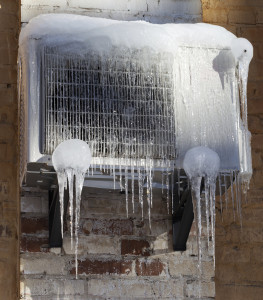Winterizing Your Tankless Water Heater
 With winter always comes the opportunity for things to freeze up. One of the last things you want to have freeze up on you is your tankless water heater. Fortunately they have been designed to take on even the worst winter weather. That doesn’t mean they can be totally neglected while winter is wreaking havoc on the temps. Here are a few ways to winterize tankless water heaters that can help to ensure you have warm water all winter long –
With winter always comes the opportunity for things to freeze up. One of the last things you want to have freeze up on you is your tankless water heater. Fortunately they have been designed to take on even the worst winter weather. That doesn’t mean they can be totally neglected while winter is wreaking havoc on the temps. Here are a few ways to winterize tankless water heaters that can help to ensure you have warm water all winter long –
Check the Gas
Anytime your gas appliances need more gas than the meter size can handle, you could experience an insufficient supply of fuel that can and will hinder performance. If you see that your meter capacity comes to less than what your total household Btuh load is, then you need to contact the gas company.
Insulation on External Pipes
While a tankless unit does contain freeze-prevention heaters there are still hot-and-cold-water lines that lead from both to and from your heater. These plumbing lines need to be protected as well. If you do experience freezing, this is where it happens. You want to protect those pipes with insulation, even if it’s something as easy and simple as using aluminum foil.
Check Your Venting
When the weather reaches extreme cold temps, back draft coming into the vents on your unit can become problematic. To avoid this try running your vent vertically rather than horizontally.
Keep The Power On
The freeze prevention heaters on your tankless water heater needs electricity to operate. You never want to unplug or disconnect the power and stop the flow of electricity to your unit in the winter time. You should actually thing about purchasing a backup generator in case your power ever does go out.
Water Flow
You have much less of a chance for your pipes to freeze when there is water flowing through the them. If you are on a re-circulation plumbing system, let it run frequently during cold winter months. Of course that will cost you more on your energy bill but it’s better than being without warm water. If you’re not on a re-circulation system, then let your faucet drip a little to prevent freezing.
Keep The Unit in an Area That is Warm
If you live where the temps can get really low, then try to place your unit in a place that is fairly warm. It will lower the risk of your unit freezing over.
Please follow us for more tips and tricks on your HVAC System and Repairs.

